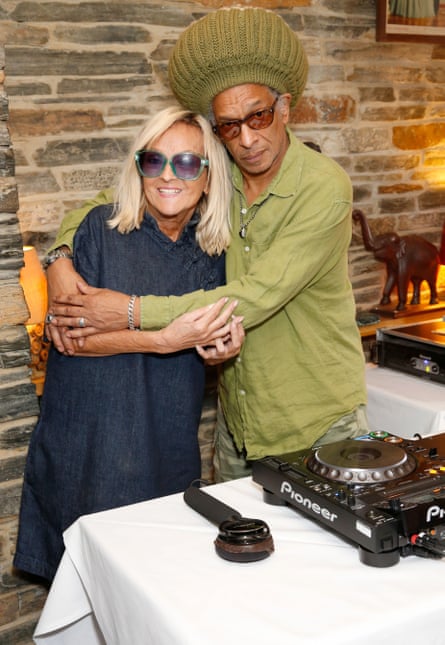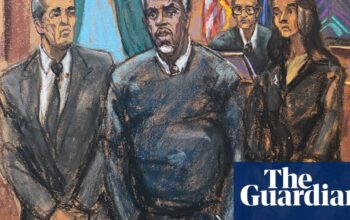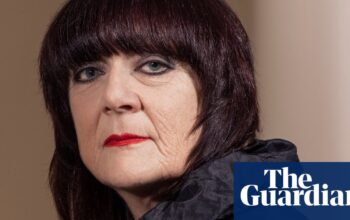W
Annie Nightingale, who passed away at the age of 83, was initially rejected by the BBC when she approached them about hosting a radio show. Despite her impressive qualifications, having interviewed the Beatles and hosted popular shows such as That’s for Me and Ready Steady Go!, she was told her voice was too high and lacked authority. The BBC also claimed that female voices would ruin the fantasy of disc jockeys being perceived as husband substitutes for housewives.
Before seeking a position at the BBC, Nightingale had already faced rejection due to her gender. She attempted to join Radio Caroline, a pirate radio station where notable DJs such as Tony Blackburn, Johnnie Walker, and Dave Lee Travis got their start. The station was located on a boat in the sea, which Nightingale could see from her apartment in Brighton. She seemed like an ideal fit for the station, with her extensive knowledge of music, passion, and connections. However, as she revealed in an interview later on, she was met with closed doors and a clear message that women were not welcome.
Nightingale’s determination was evident in her persistence in pursuing a position with the BBC. Despite facing initial rejection, she used her magazine columns to expose the corporation’s unfair treatment towards women. Finally, after three years of trying, Radio 1 gave in and offered her a six-programme trial in 1970, which eventually led to a permanent slot. This earned Nightingale the title of the first lady of radio, as she was the first woman in Britain to have her own radio show. It took another 12 years for the station to hire another female presenter, solidifying Nightingale’s legacy as the longest-serving presenter on the network.

Nightingale was a trailblazer and an unwavering lover of music who did not seek fame (when she was offered the Radio 1 role, she requested to host evening shows so she could play whatever songs she pleased). However, unlike many of her male colleagues, she did not want to control who could enter the industry. Instead, Nightingale deliberately propped open the doors of broadcasting and encouraged others to join her. Radio DJs like Janice Long and Lauren Laverne have recognized the influence she had on their careers.
I had the opportunity to meet with Nightingale on two occasions. The first was to discuss her memoir, Hey Hi Hello, and the second was during a live interview in front of a group of students. She exuded a rock star persona, keeping her sunglasses on and sharing numerous anecdotes. However, she also lived up to her generous reputation by staying well after the interview to engage in one-on-one conversations with students. She even casually gave out her phone number to those who aspired to follow in her footsteps.
Nightingale’s musical connections were remarkable – along with the Beatles, she interviewed Keith Moon, Bob Marley, Dusty Springfield, Marc Bolan, Malcolm McLaren and David Bowie. She saw herself not as a music critic but a fan and was dismissive of the old Lester Bangs edict that you shouldn’t be friends with bands. Having been welcomed into the Beatles’ inner sanctum, she knew about the relationship between John Lennon and Yoko Ono long before they went public with it, but decided to ignore her journalistic impulses and kept stumm.
Similar to her contemporary John Peel, Nightingale was highly respected by musicians from all genres who would send her their demos in hopes of receiving her approval and potentially getting airtime on her show. Despite being in her 80s, she continued her job on Radio 1 instead of moving to the more relaxed Radio 2, demonstrating her dedication to promoting new sounds. While she did occasionally host shows and documentaries on Radio 2 and 6 Music, she never fell into the trap of catering only to her age and background. She maintained the same level of excitement for new music throughout her life, defying expectations to only focus on older generations. Nightingale’s success as a broadcaster can be attributed to her ability to stay current and understand the tastes and perspectives of each new generation. Her own pure and passionate interests, free from cynicism or sarcasm, set her apart from many of her peers. In a time where algorithms on streaming services try to predict our preferences, Nightingale’s natural resistance to demographic profiling made her even more valuable.
Although the beginning of her career with the BBC may have been less than ideal, Nightingale eventually developed a strong affection for the organization and viewed radio as the most powerful form of communication. In her words, the voice between songs is what people desire. She believes that a great broadcaster should be consistent both on and off the air, and she strives to be genuine in her personality and musical preferences.
Source: theguardian.com


